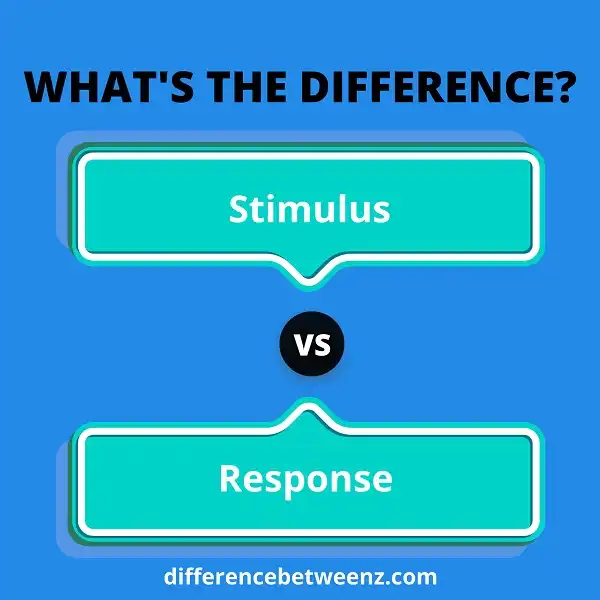In psychology, the terms stimulus and response are often used when discussing behaviors. The stimulus is the event or action that initiates a behavior, while the response is the behavior itself. In order to understand how these concepts work together, it’s important to explore each one in more detail. This article will discuss the definition of stimulus and response, as well as provide examples of each. By understanding these concepts, you can better understand how your own behavior works and develop strategies for change if necessary.
What is a Stimulus?
A stimulus is anything that elicits a response. It can be an external factor, like a touch or a sound, or an internal factor, like a thought or an emotion. Stimuli can be either positive or negative; they can excite us or calm us down, make us happy or sad. In short, anything that causes us to react is a stimulus.
When it comes to studying human behavior, psychologists are interested in both the external and internal stimuli that influence our actions. By understanding what triggers our behavior, we can gain insight into why we do the things we do. And that knowledge can help us make better choices in the future.
What is Response?
The response concept is a basic principle in the study of psychology that states that all behavior is a response to some sort of stimulus. In other words, every time we behave in a certain way, it is because we have been triggered by something in our environment. For example, if we see a scary movie, our heart rate will increase and we may feel scared.
This is because our brain has responded to the images and sounds in the movie by increasing our heart rate and releasing adrenaline. The response concept is a simple but powerful tool that psychologists use to understand Why we do the things we do.
Difference between Stimulus and Response
Stimulus and response are two important concepts in the study of psychology. A stimulus is anything that elicits a response from an organism. It can be internal or external, and it can be physical, mental, or emotional. A response is any reaction to a stimulus. It can be voluntary or involuntary, and it can be motor, behavioral, or emotional.
Stimulus and response are interconnected; the stimuli we experience shape our responses, and our responses in turn shape the stimuli we attend to. The study of stimulus and response is essential for understanding how we interact with our environment and how our behavior is shaped by our experiences.
Conclusion
Stimulus and response are two important concepts to understand when it comes to marketing. The stimulus is the thing that you as a marketer do in order to get a reaction from your customer. This might be an ad, a sale, or something else that you put out there to try and get people interested in your product.
The response is what the customer does in return- this might be clicking on the ad, buying the product, or any other action that you’re hoping for. If you can learn how to create stimuli that provoke positive responses from customers, you’ll be well on your way to driving more sales and better ROI for your business.


